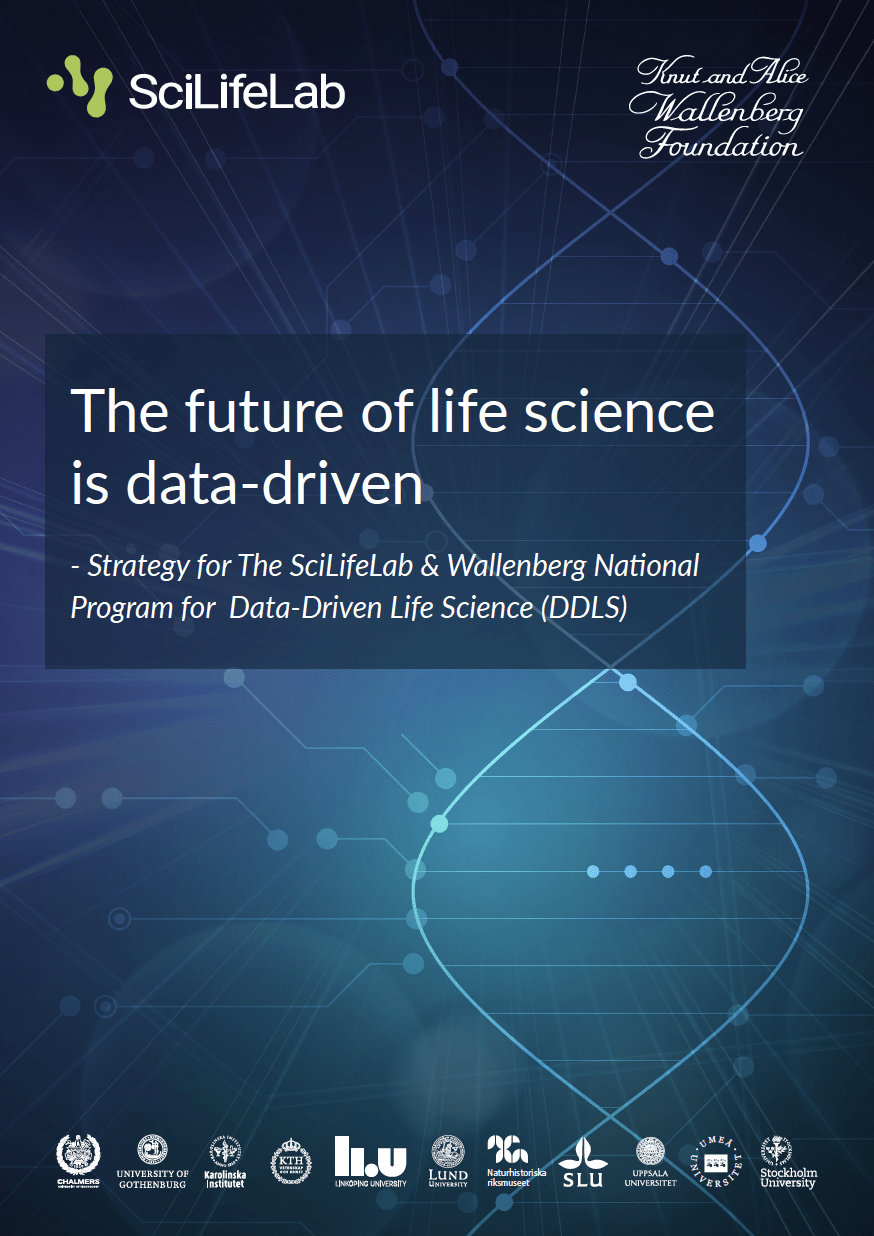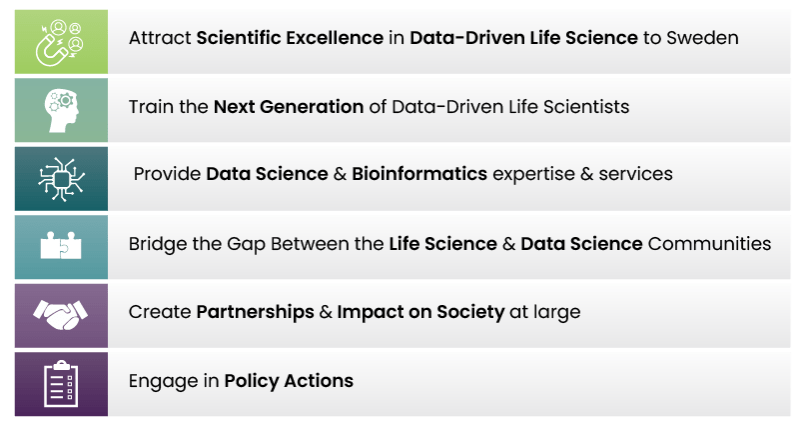DDLS strategy – The future of life science is data-driven
“We are still at the start of a digital era for life sciences that will be enhanced and transformed by the capabilities of AI.”
“Together with the 11 partner organizations this truly national DDLS program will be essential in Sweden to lead this transformation and not just react to it.“
Citations from the DDLS strategy document

Background
The SciLifeLab and Wallenberg National Program for Data-Driven Life Science (DDLS) program is a national 12-year research program that involves 11 partner organizations, collaborators nationally and internationally, the Swedish life science community, industry, healthcare, and other stakeholders in society at large. A joint long-term strategy enables the program to succeed with its ambitions and create synergistic benefits for the entire life science ecosystem. Read more about the program on: About the DDLS program.
DDLS strategy
The strategy sets out the direction of the national program and describes what DDLS wants to achieve in the coming years. It describes the program’s motivation, specific aims, an overall strategy, and the priorities of the four strategic research areas.
This is the second version of the strategy for DDLS, released 2023.
Vision
The future of life science is data-driven
Mission
As a national research and training program across 11 partners, SciLifeLab & Wallenberg National Program for Data-Driven Life Science, DDLS, focuses on how data science and computational approaches enable and energize life science as well as applications in health, environment and industrial research.
How do we define data-driven life science?
Data-driven life science is a field of research that focuses on using data, computational methods and artificial intelligence to study biological systems and processes. This approach includes assembling, sharing, integration and advanced analysis of large amounts of data from diverse sources, including experiments, observations, and simulations, in order to gain a better understanding of how living organisms’ function.

Strategic objectives of the DDLS program
The national DDLS mission will be accomplished by recruitment of talent, creation of a national program for training and research excellence, realization of a national data platform with advanced bioinformatic support, and setting up a collaboration hub for engaging academia, healthcare and industry. Therefore, DDLS will have a deep impact for every life scientist, but also for society at large. DDLS aims to change how life science is practised in the future and thus equip the research community with essential future data-driven skills and capabilities.
To realize the DDLS strategy, the four research areas together with six strategic objectives describe the priorities of this national program.

Developing a long-term DDLS strategy
The strategy for the DDLS program was developed by the DDLS steering group with input from KAW, the 11 participating organizations, as well as the SciLifeLab Board, SciLifeLab International Advisory Board, SciLifeLab Management Group, SciLifeLab Operations Office, SciLifeLab Data Centre, NBIS, and in dialogue with other KAW-funded research programs WASP, WASP-HS and WCMM.
We are also grateful for input from organizations participating in the open digital meeting, “The future of life science is data-driven – DDLS update and strategy” on September 14, 2021 when the DDLS strategy was presented and discussed.
This is the second version of the strategy for DDLS, released 2023.
Creating a joint long-term strategy with all stakeholders will enable the ambitions of the national DDLS program to succeed and create synergistic benefits for the entire life science ecosystem thus create capabilities to tackle the future societal grand challenges.
Finally, we acknowledge Knut and Alice Wallenberg foundation for their generous donation enabling the SciLifeLab & Wallenberg Data Driven Life Science Program (Donation letter: KAW 2020.0239).